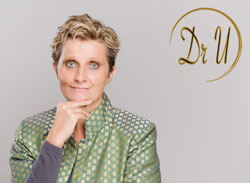This is SO not Zeitgeist. En vogue is mindfulness. And in this spirit, we follow the self-selected mindfulness gurus and apps who tell us our healing lies in focusing on, for example, the sensation of walking alone. I experienced yoga teachers telling me to “just stop thinking” and to notice only my feet on the ground. Promising us, such one-dimensional exercise is salutary. On the way out I witnessed participants’ conversations snippets: “Why can I not stop thinking” or “My brain is so active”.
I really wanted to say to participants: “Good for you”. Why? It is impossible to “stop thinking” whilst being alive. I go out on a limb here. Nobody in this yoga class wanted to stop living. But – wherever I go, whatever Resilience workshop I give, whichever client I work with, the mantra of inward-looking work, whilst not thinking about it, has become the holy grail of calmness, relaxation and living a valued life. In this spirit mindfulness is a finger-pointing exercise:
You can’t relax?
You cannot be calm?
Well, you better learn to clear your mind and stop thinking.
In this rigidity lies the problem. Of course, for many people, introspective awareness work can be helpful. But such work is far removed from dare is say, the ludicrous idea of “just stop thinking”. It is about seeking to observe that which we are thinking. The goal is the insight that our thought-content is fleeting, not always true to our reality but powerful, nonetheless. However, all of this is a form of thinking too.
Richard Schmid’s quote reminds us that there are many ways to detach from difficult thoughts. We can utilise the therapeutic power of walking itself. Whilst walking we can put our own thoughts in perspective to the wider world. We can find the beauty and the ugly along the way. And we can experience that everything outside and inside us is changing, with every step we take.
The next time somebody tells us to “just stop thinking” we might have to say “no thank you – I’d rather be alive”.
 “My therapy is pragmatic, skilled and effective in delivering sustainable change. I believe therapy is only worthwhile when it makes a long-lasting change for the better.”
“My therapy is pragmatic, skilled and effective in delivering sustainable change. I believe therapy is only worthwhile when it makes a long-lasting change for the better.”
Dr Ute Liersch, BSc, MA
ute@vonlerse.com
07494 911464
www.ute.care


